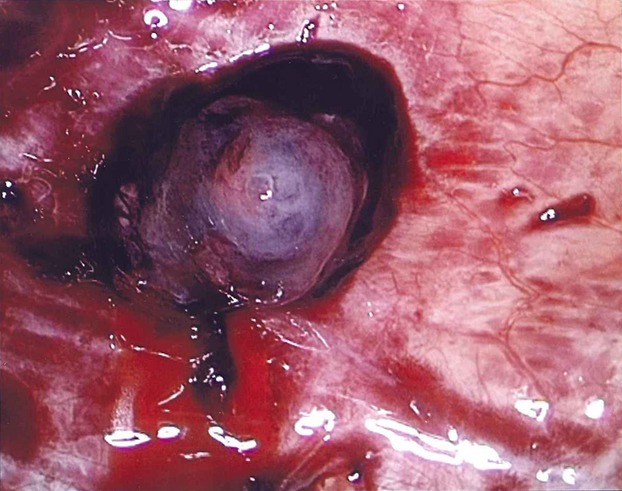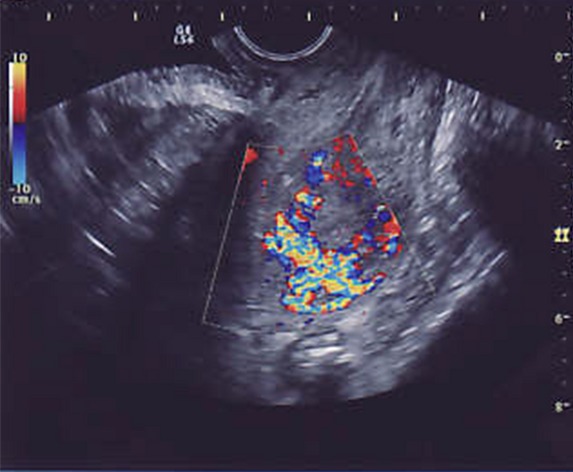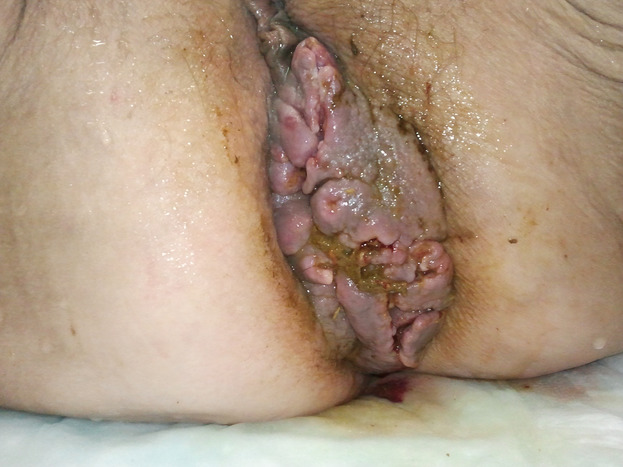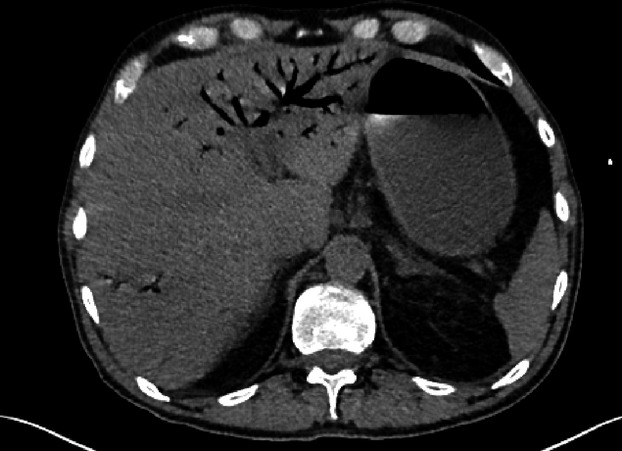Journal list menu
Export Citations
Download PDFs
Issue Information
Case Reports
Refractory immune thrombocytopenia. Successful treatment with repeated cyclosporine A: two case reports
- Pages: 337-341
- First Published: 10 March 2015

Treatment of chronic, severe refractory immune thrombocytopenia after splenectomy is difficult. Only less data exist on clinical use of cyclosporine A (CyA) in the management of refractory ITP. In this report, we describe two cases in which standard immunosuppressive therapy, other immunosuppression including cyclosporine A or splenectomy had no therapeutic effect. Even after splenectomy, recommended procedures were inefficient and critical thrombocytes count persisted. After repeated administration of cyclosporine A which had been ineffective prior to splenectomy; however, both patients achieved long-term complete remission of the ITP. Side effects of CyA were moderate. The presented cases have confirmed the potential therapeutic effect of CyA in refractory post-SE ITP.
Cardiogenic shock due to Gemella morbillorum native mitral valve endocarditis
- Pages: 342-344
- First Published: 10 March 2015
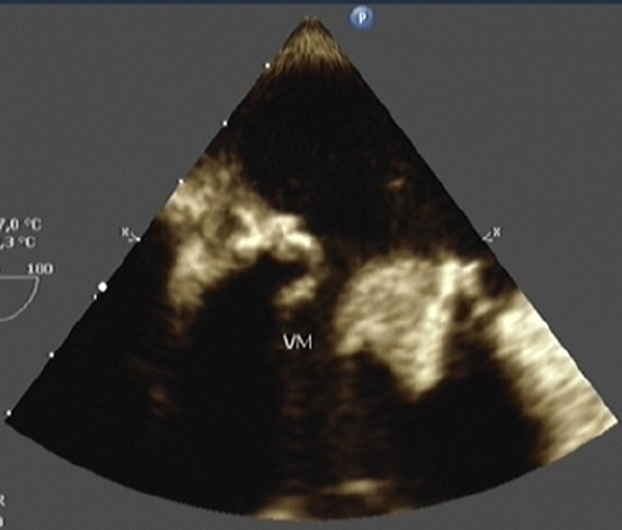
Gemella morbillorum is a rare cause of infective endocarditis. Consequently, little is known about the natural course of endocarditis secondary to this pathogen. Herein, we report a case of cardiogenic shock as a complication of acute mitral valve regurgitation following Gemella morbillorum native valve endocarditis.
A very unusual complication of amniocentesis
- Pages: 345-348
- First Published: 12 March 2015
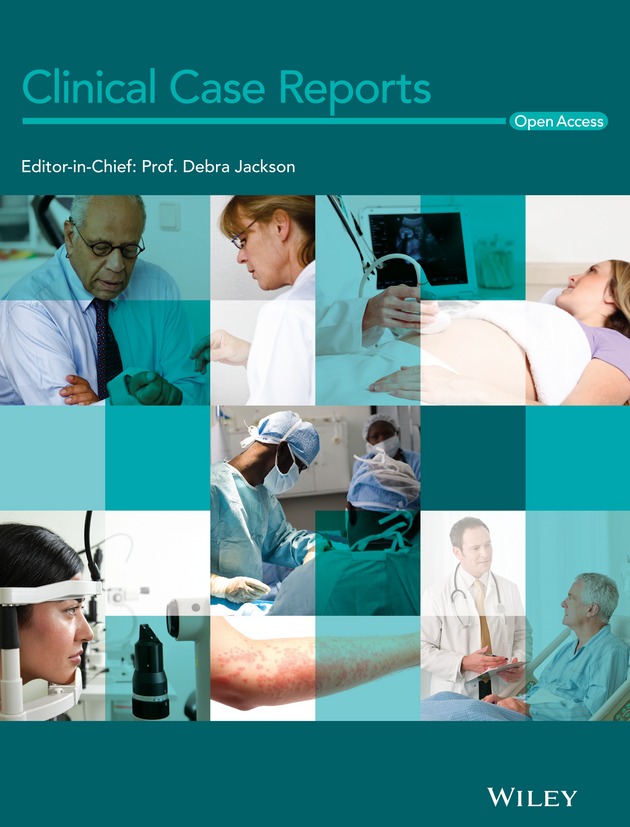
The uses of amniocentesis are numerous, including determination of chromosomal abnormalities, lung maturity, and infections. A common complication of amniocentesis is loss of the pregnancy, but rare complications should be considered. The role of patient history and clinical observation of uncommon presentations are critical in the management of the patient.
Primary nodular lymphocyte-predominant Hodgkin lymphoma of uterine cervix mimicking leiomyoma
- Pages: 349-352
- First Published: 23 March 2015
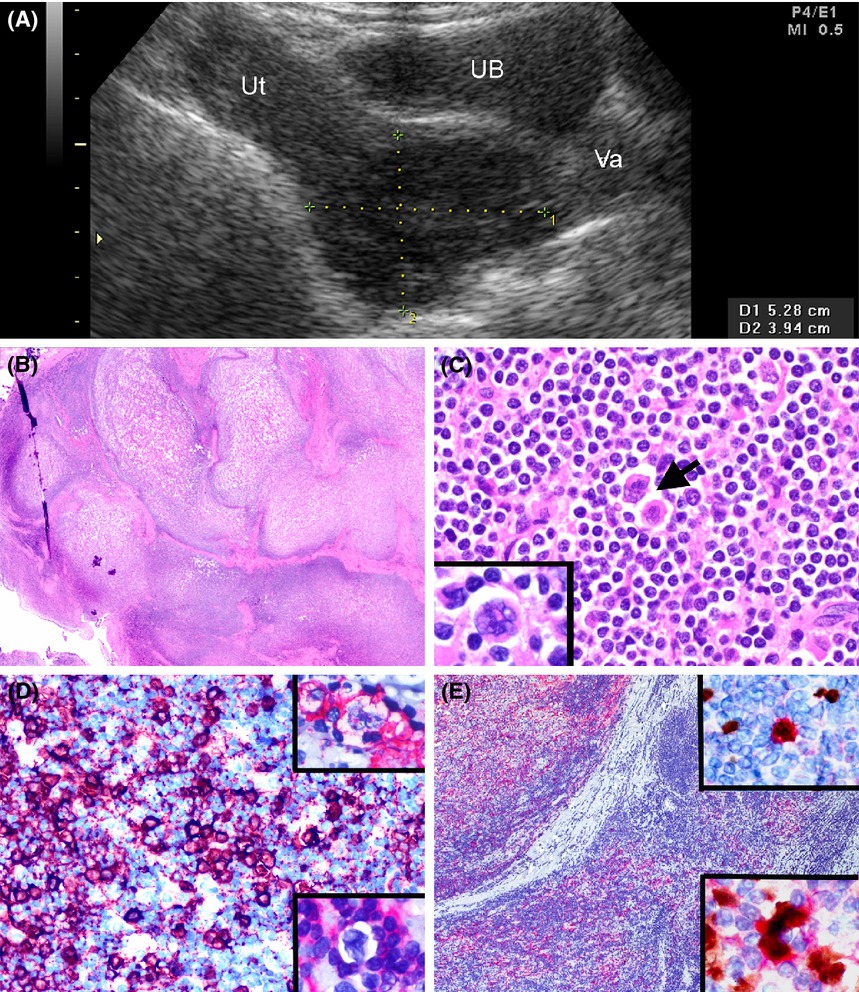
Nodular lymphocyte-predominant Hodgkin lymphoma (NLPHL) accounts for about 5% of all Hodgkin lymphomas and predominantly involves peripheral lymph nodes. Primary NLPHL of uterine cervix is very rare. Here, we report cervical NLPHL with CD21 expression in a 43-year-old woman, who presented with abnormal vaginal bleeding for 1 year.
HIV drug resistance mutations following poor adherence in HIV-infected patient: a case report
- Pages: 353-356
- First Published: 29 March 2015
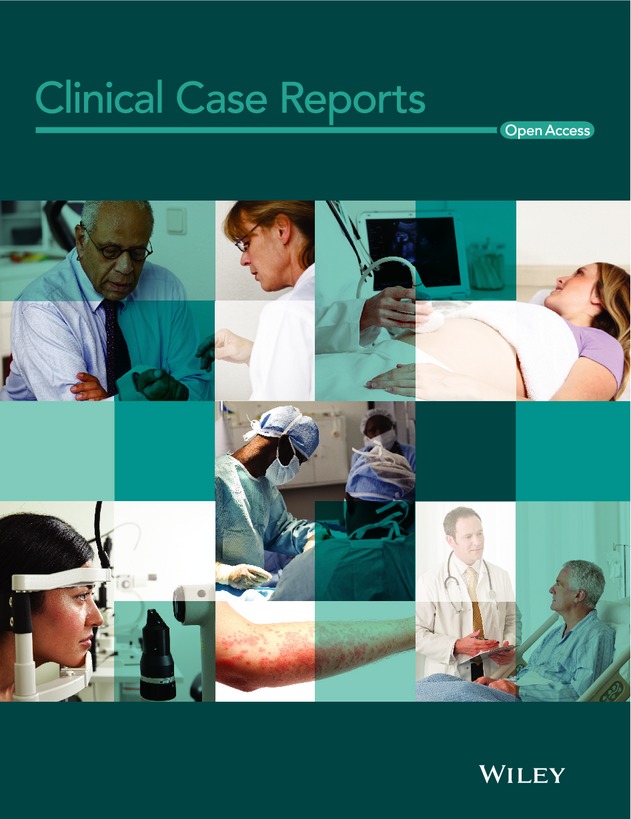
Acquired HIV drug resistance following poor adherence is common. We report a case of HIV-infected patient with poor CD4 gain and self reported poor adherence. Investigations revealed high viral load and resistance to NRTIs and NNRTIs with sensitivity to boosted PIs. HIVDR mutations create treatment challenges in resource limited settings.
2q31.1 microdeletion syndrome: case report and literature review
- Pages: 357-360
- First Published: 29 March 2015
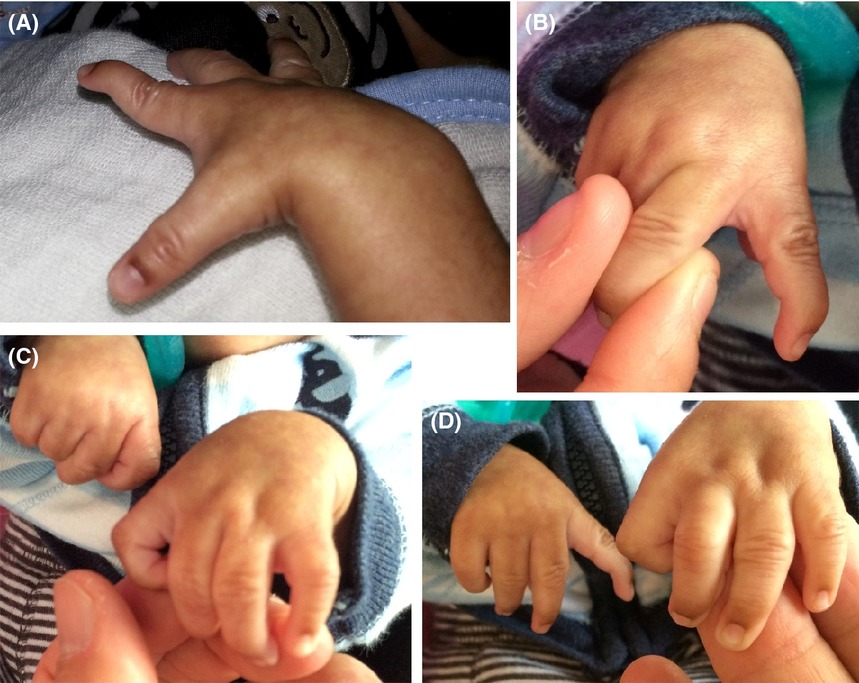
We describe a preterm neonate with bilateral coloboma of the iris, upper and lower limb malformations including rocker bottom feet, camptodactyly, and clinodactyly together with microcephaly and small for gestational age whom cytogenetic diagnosis using SNP microarray detected an interstitial deletion of chromosome 2 between 2q31.1 and 33.1.
Deferasirox in a refractory anemia after other treatment options: case report and literature review
- Pages: 361-367
- First Published: 29 March 2015
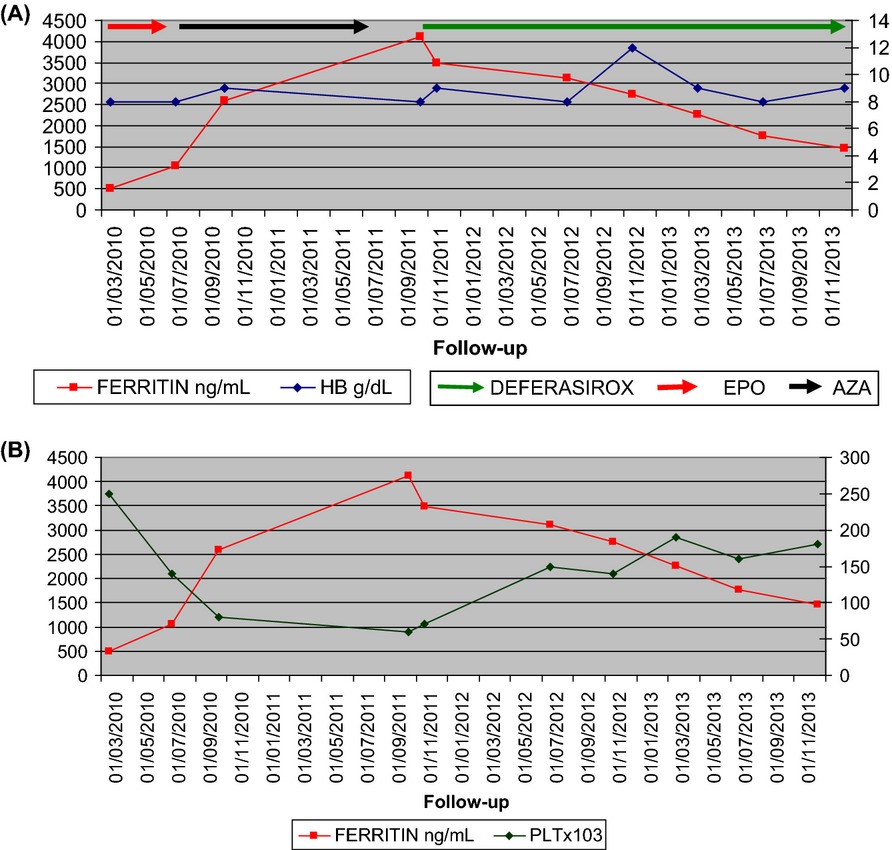
Deferasirox, represents an effective iron chelator drug in lower risk myelodysplastic syndromes. Reduction in oxidative stress is responsible of the hematologic improvement but further explanation may impact on its benefit. Biological and clinical studies are necessary to better define mechanisms of action, assess toxicities, and predicting factors of response.
Unusual consequence of a fetal atrial septal aneurysm
- Pages: 368-369
- First Published: 31 March 2015
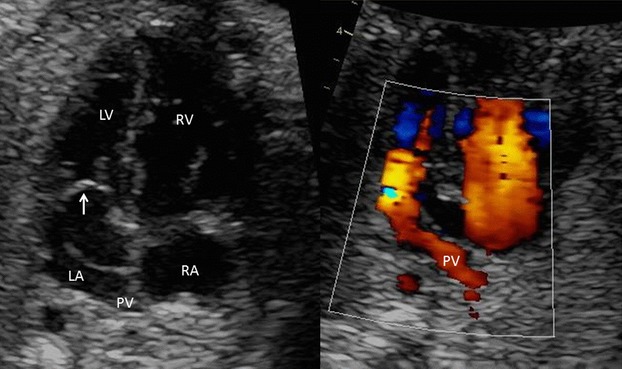
We describe the case of a significant fetal atrial septal aneurysm causing left ventricular inflow obstruction. Serial fetal echocardiograms demonstrated potential left heart hypoplasia. The fetal cardiologist guided the perinatal team to electively deliver the infant early and modify the course of developing hypoplastic left heart.
Acute graft-versus-host disease and bronchiolitis obliterans after autologous stem cell transplantation in a patient with multiple myeloma
- Pages: 370-375
- First Published: 09 April 2015
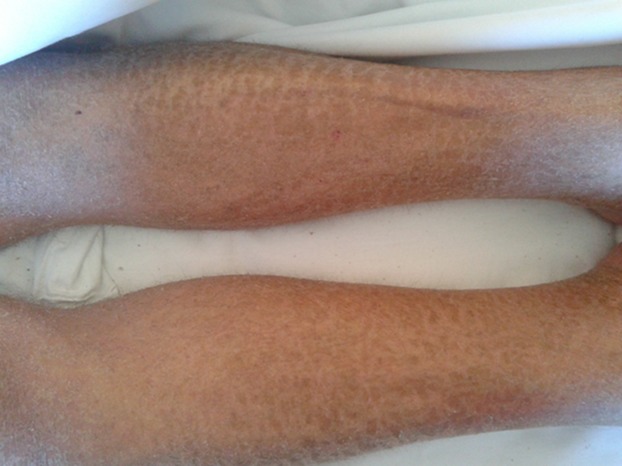
Sixty-seven-year-old patient, diagnosed with multiple myeloma who had received autologous stem cell transplantation, following bortezomib, dexamethasone, and thalidomide conventional regimen, achieving complete response, developed rash, diarrhea, and severe respiratory failure, 80 days after the transplantation procedure. He was diagnosed with graft-versus-host disease and bronchiolitis obliterans syndrome.
“Burnt out” dilated hypertrophic cardiomyopathy causing acute LVAD thrombosis
- Pages: 376-378
- First Published: 09 April 2015
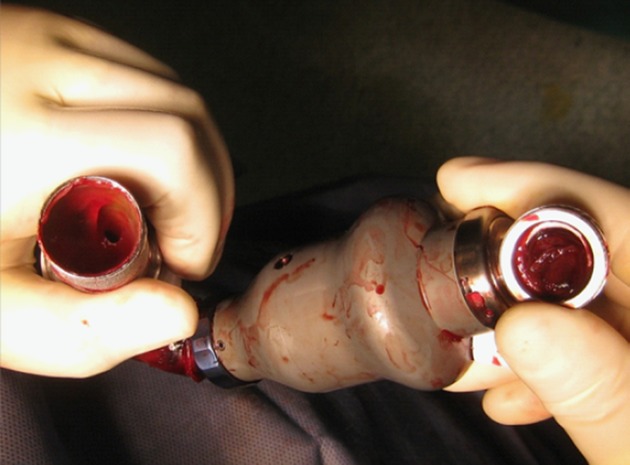
Case report illustrates obstruction encountered in a patient with end-stage dilated hypertrophic cardiomyopathy (HCM) who underwent LVAD implantation. The morphology reversed in the early postoperative period to HCM. Pump replacement required coring of the ventricular muscle. Dilated end-stage hypertrophic cardiomyopathy can revert back to the original morphology on decompression.
Prolonged neuropsychiatric effects following management of chloroquine intoxication with psychotropic polypharmacy
- Pages: 379-387
- First Published: 09 April 2015
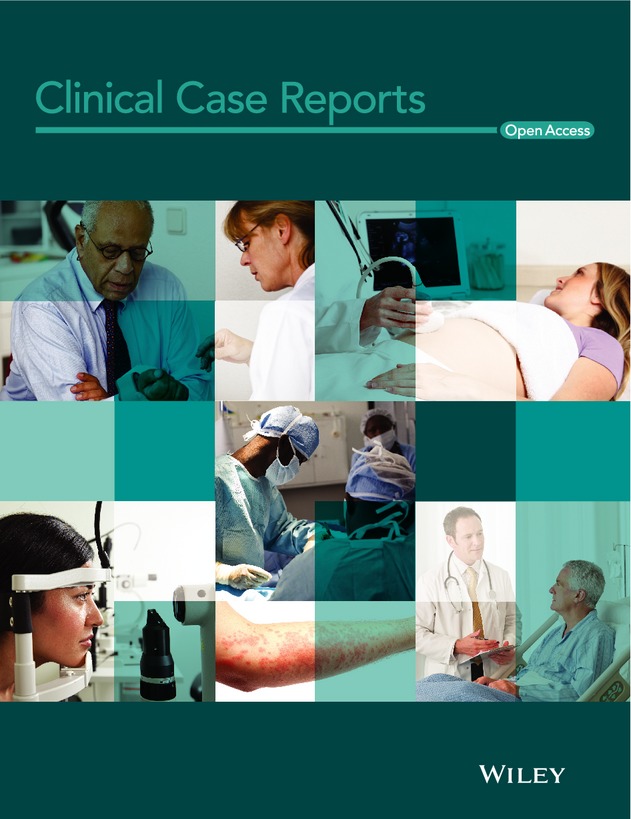
Susceptibility to quinoline antimalarial intoxication may reflect individual genetic and drug-induced variation in neuropharmacokinetics. In this report, we describe a case of chloroquine intoxication that appeared to be prolonged by subsequent use of multiple psychotropic medications. This case highlights important new considerations for the management of quinoline antimalarial intoxication.
Lumbar puncture complicated by spinal epidural hematoma in a child with leukemia
- Pages: 388-391
- First Published: 09 April 2015
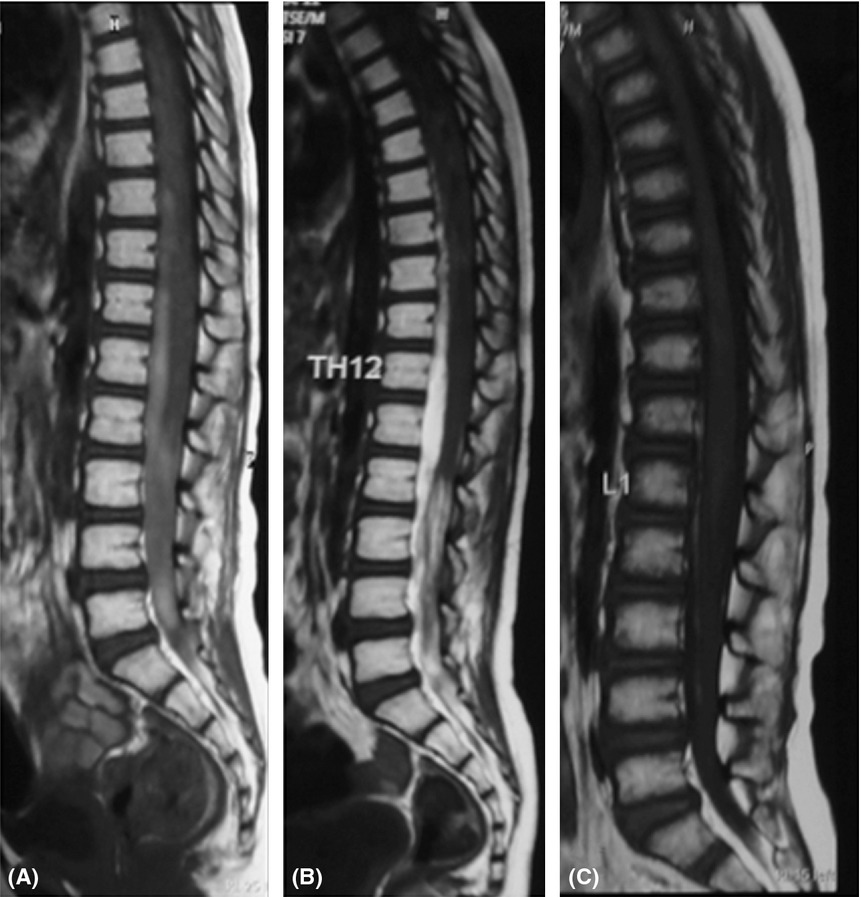
We report a case of spinal epidural hematoma (SEH) preceded by diagnostic lumbar puncture (LP) in a 5-year-old boy with acute lymphoblastic leukemia. MRI confirmed the presence of SEH between T7 and L5 levels, but the patient showed fast recovery during the next hours and conservative management was elected.
Adult-onset Diamond-Blackfan anemia with a novel mutation in the exon 5 of RPL11: too late and too rare
- Pages: 392-395
- First Published: 09 April 2015
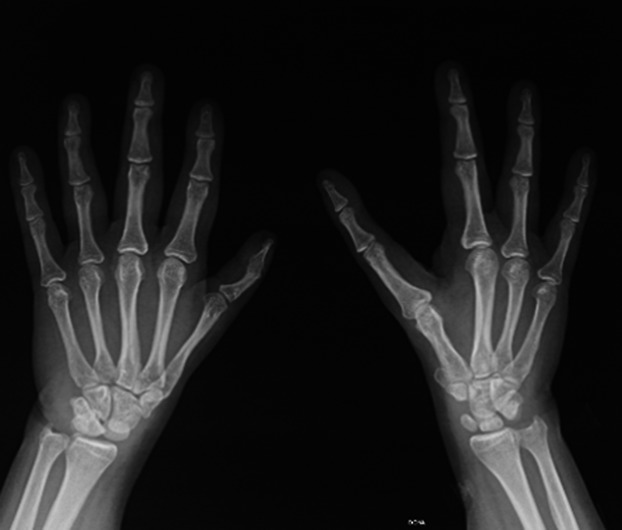
Diamond-Blackfan anemia (DBA) is a congenital erythroid aplasia usually diagnosed in the early infancy and associated with mutations or large deletions in 11 ribosomal protein (RP) genes. Adult patients with severe, transfusion dependence, are generative anemia might have a genetic-in-origin disease with an atypical presentation. Late onset nonclassical DBA should be ruled out and mutations of RP genes studied.
Nine de novo duplications affecting both maternal and paternal chromosomes and an inherited 15q11.2 deletion, in a patient with developmental delay
- Pages: 396-401
- First Published: 09 April 2015
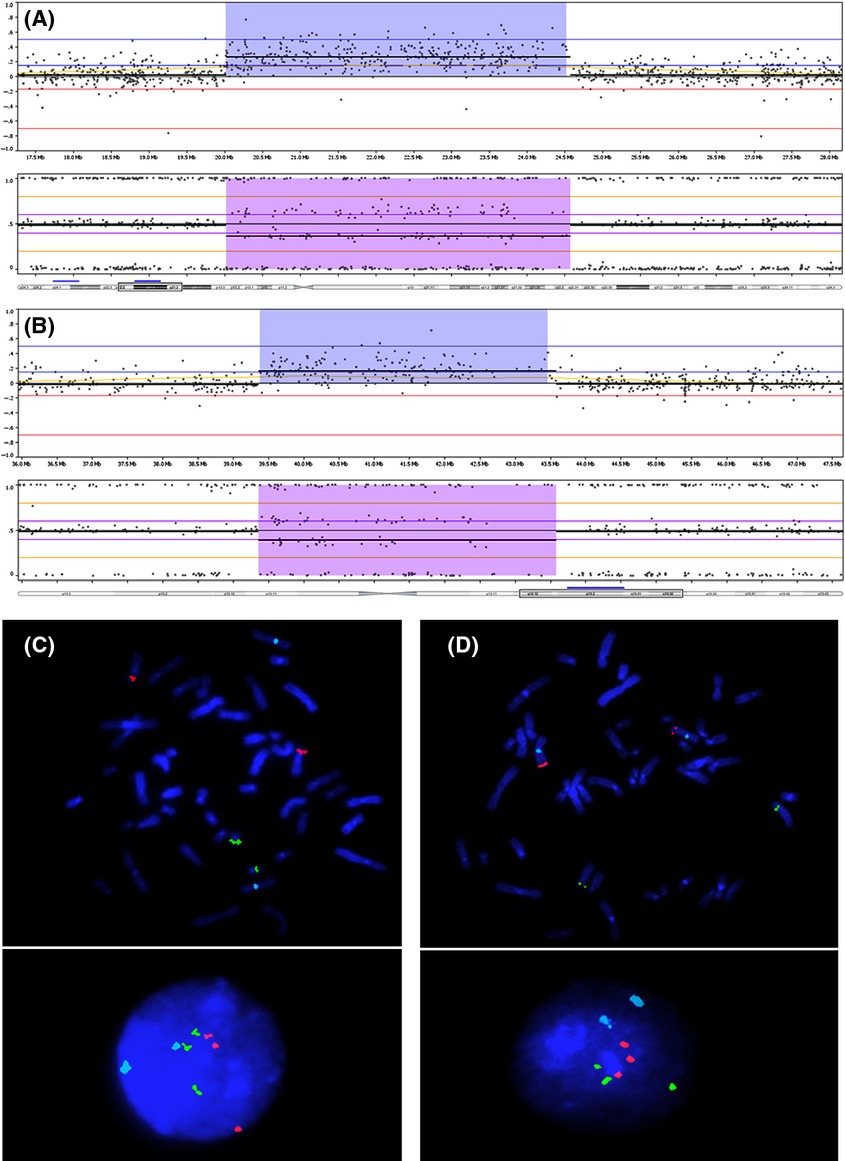
A patient with developmental delay and nine, de novo, tandem duplications affecting eight different chromosomes that arose on both maternal and paternal chromosomes indicating a vulnerable zygotic or early postzygotic period of development for these errors, potentially affected by genetic and nongenetic factors.
MLL-ELL fusion gene in an acute myelomonocytic leukemia patient transformed from acute promyelocytic leukemia
- Pages: 402-405
- First Published: 09 April 2015
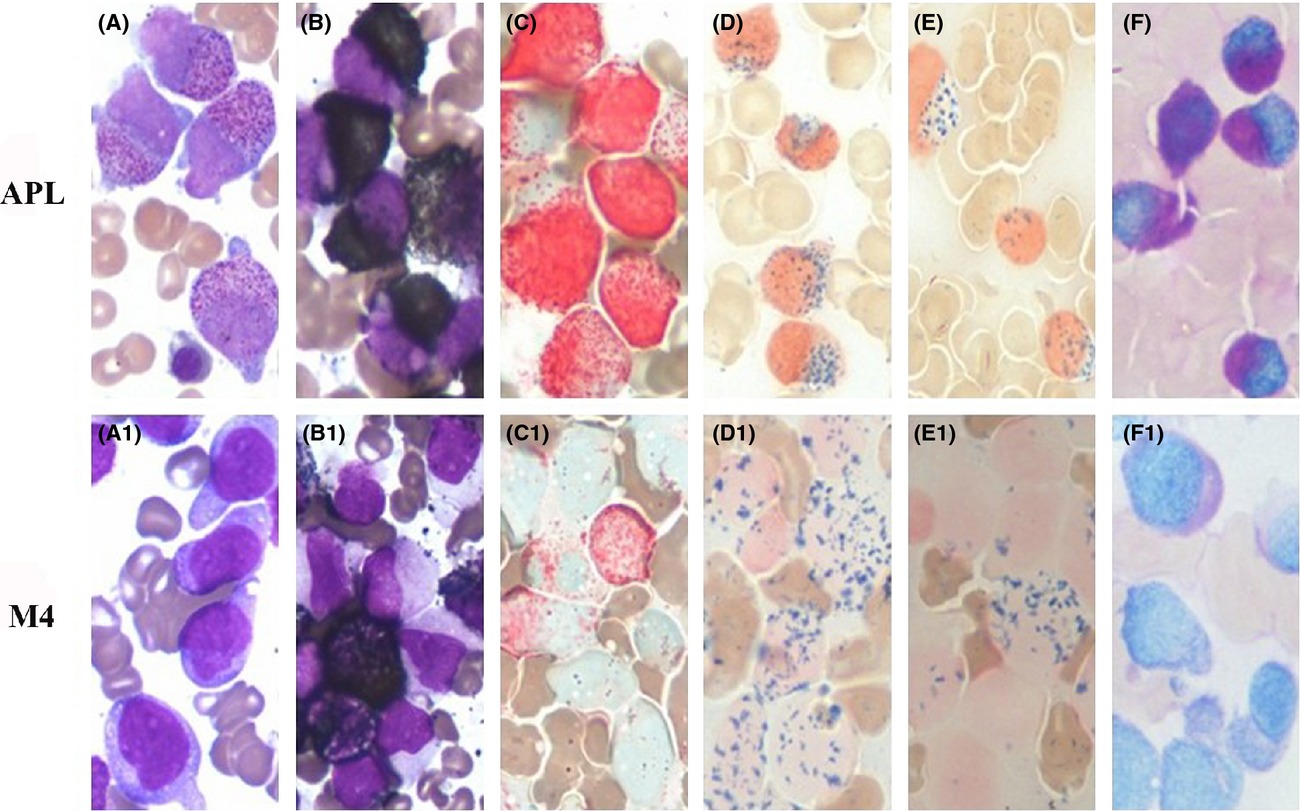
We report an extremely rare case of acute myelomonocytic leukemia (M4) with an MLL-ELL fusion gene lacking the PML-RARα rearrangement that transformed from hypergranular acute promyelocytic leukemia (APL) without showing any karyotypic evolution. The treatment was effective with chemotherapy for M4 and idarubicin plus a cytarabine-based chemotherapy protocol without ATRA.
Digynic triploidy: utility and challenges of noninvasive prenatal testing
- Pages: 406-410
- First Published: 09 April 2015

Low fraction fetal DNA in noninvasive prenatal testing in the context of fetal growth restriction and multiple congenital anomalies should alert medical professionals to the possibility of digynic triploidy. Single-nucleotide polymorphism microarray can detect the parental origin of triploidy and explain its mechanism.
Familial hypercholesterolemia presenting with multiple nodules of the hands and elbow
- Pages: 411-414
- First Published: 09 April 2015
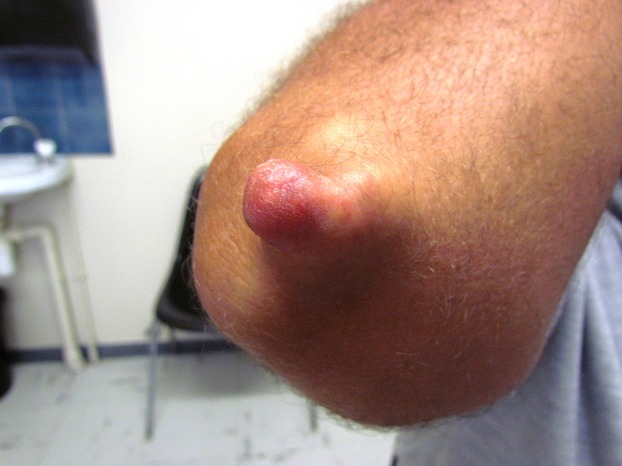
Familial hypercholesterolemia is a common but commonly missed diagnosis. Tendon xanthomas are a physical sign strongly suggestive of FH. Physicians must identify tendon xanthomas, apply validated clinical scoring such as the Dutch Lipid Clinic Network criteria and offer cascade screening. This approach will increase recognition of FH.
A 6q14.1-q15 microdeletion in a male patient with severe autistic disorder, lack of oral language, and dysmorphic features with concomitant presence of a maternally inherited Xp22.31 copy number gain
- Pages: 415-423
- First Published: 09 April 2015
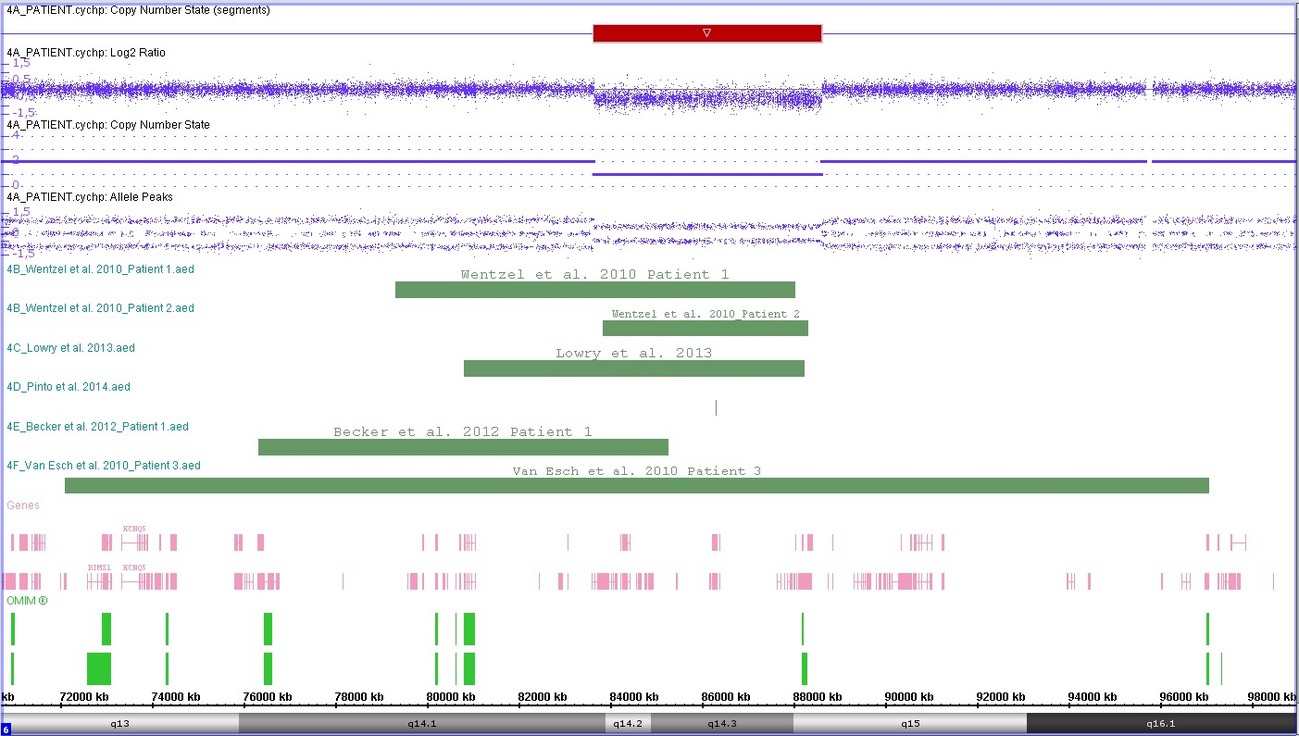
We report on a male patient with severe autistic disorder, lack of oral language, and dysmorphic features who carries a rare interstitial microdeletion of 4.96 Mb at chromosome 6q14.1-q15. The patient also harbors a maternally inherited copy number gain of 1.69 Mb at chromosome Xp22.31, whose pathogenicity is under debate.
Myotonic dystrophy as a cause of colonic pseudoobstruction: not just another constipated child
- Pages: 424-426
- First Published: 09 April 2015
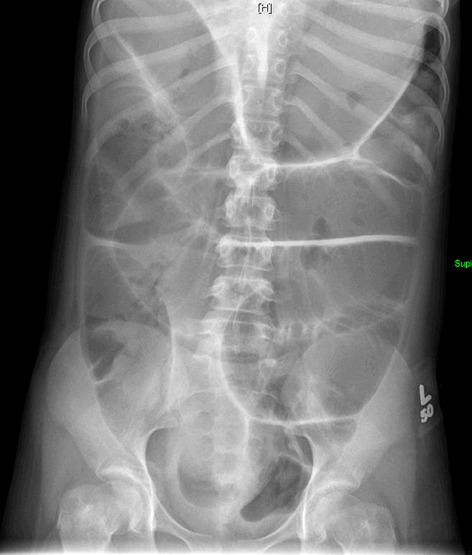
Muscular dystrophy has been traditionally associated with common gastrointestinal symptoms such as reflux, constipation, and dysphasia. In myotonic dystrophy, there are rare reports of chronic intestinal pseudoobstruction (CIPOS). We herein present a case of CIPOS requiring colectomy and with good results.
Potentially lethal ACE-inhibitor-induced angioedema in a child
- Pages: 427-430
- First Published: 09 April 2015
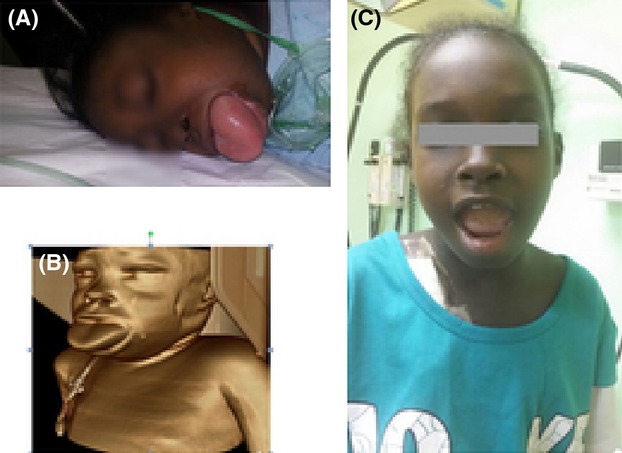
We report a case of a 9-year-old female with known end-stage kidney disease who presented with sudden onset tongue swelling. A diagnosis of angiotensin-converting enzyme inhibitor-induced angioedema related to bradykinin accumulation was made. Her symptoms resolved shortly after discontinuation of captopril. Early diagnosis can save patients from severe upper airway obstruction.
Peritoneal pregnancy with massive hemoperitoneum in early gestation: two case reports
- Pages: 431-437
- First Published: 09 April 2015
Nontuberculous mycobacterial infection in a patient with myelofibrosis: case report and concise review
- Pages: 438-441
- First Published: 09 April 2015
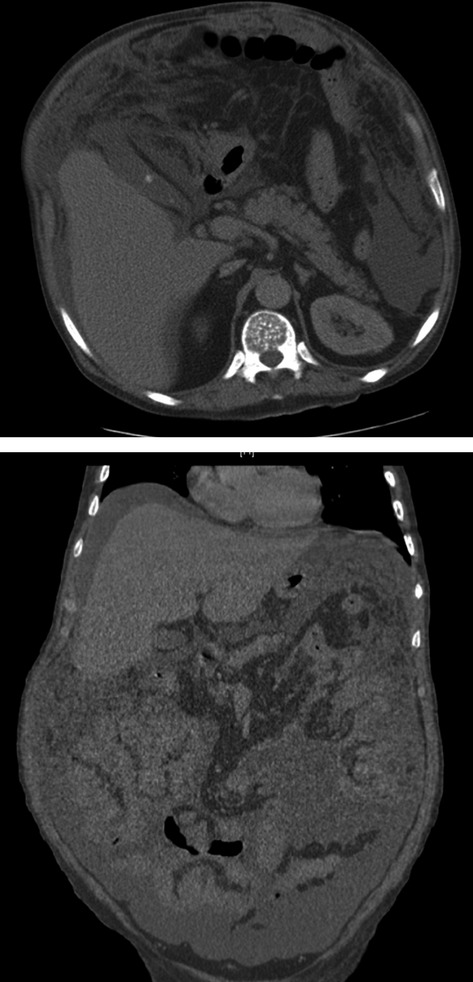
A 70-year-old patient having massive refractory ascites in the course of idiopathic myelofibrosis was diagnosed of peritoneal extramedullary hematopoiesis and developed an overwhelming nontuberculous mycobacterial infection. The case describes this unusual infection and highlights the need for additional studies to confirm the etiology of ascites in primary myelofibrosis.
Follicular lymphoma (in situ) pattern in the bone marrow: does it indicate an early stage in disease evolution?
- Pages: 442-443
- First Published: 09 April 2015
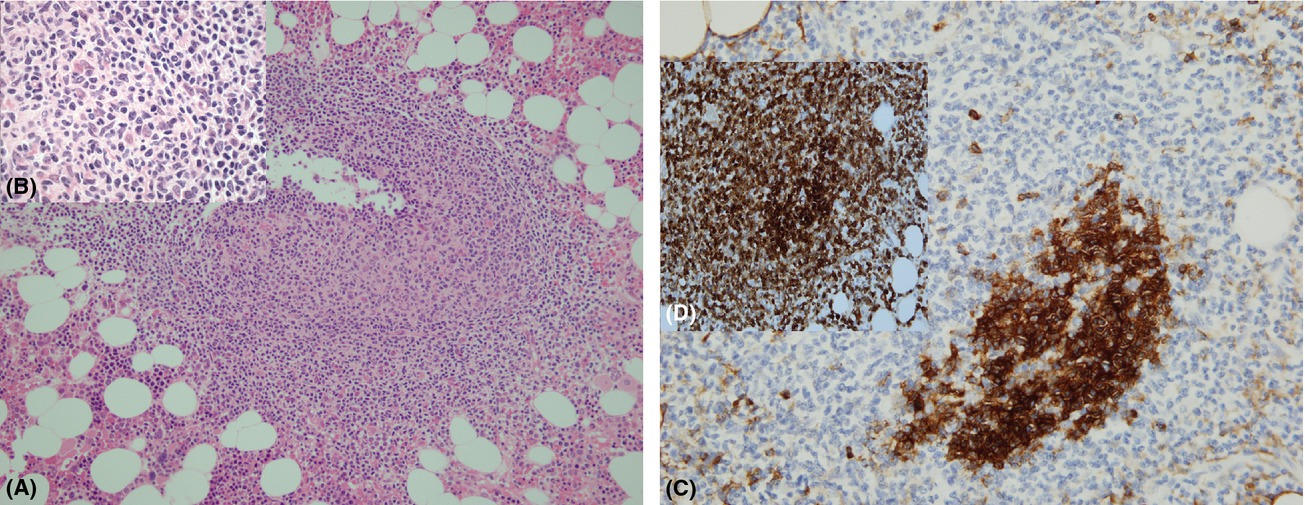
Bone marrow involvement by an isolated interstitial lymphoid aggregate exhibiting the pattern and phenotype described for follicular lymphoma in situ (FLIS) has not been reported before. The detection of clinically silent FL in this case highlights the necessity of complete staging workup when such lesions are encountered in biopsies.
Suppression of postsurgical recurrence of hepatocellular carcinoma treated with autologous formalin-fixed tumor vaccine, with special reference to glypican-3
- Pages: 444-447
- First Published: 17 April 2015
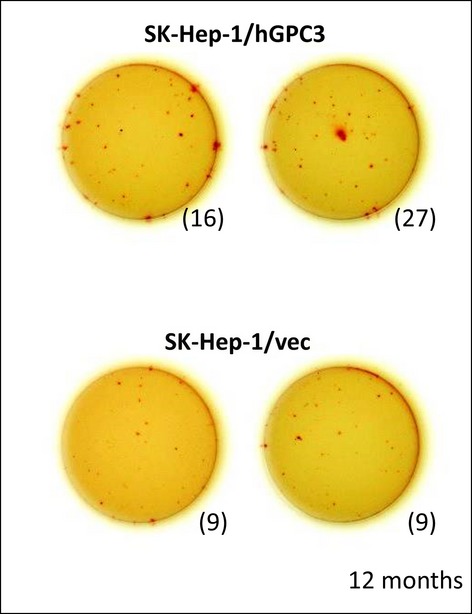
Autologous formalin-fixed tumor vaccine (AFTV) suppressed re-recurrence for more than 32 months of multiple-recurrent hepatocellular carcinoma based on hepatitis C virus-induced liver cirrhosis in a case with previous recurrence interval, 51-, 28-, 12-, and 4-months. We detected glypican-3-specific cytotoxic T lymphocytes in the peripheral blood at 12 months after AFTV.
A novel mutation of SETBP1 in atypical chronic myeloid leukemia transformed from acute myelomonocytic leukemia
- Pages: 448-452
- First Published: 22 April 2015
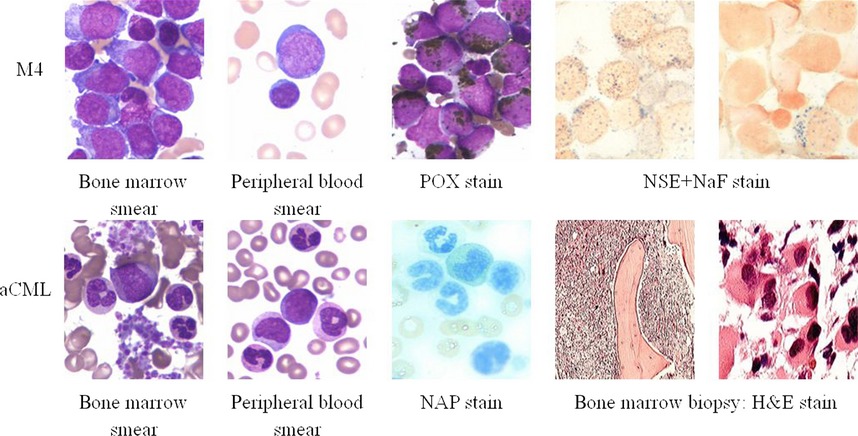
To investigate an oncogenic mutation of SETBP1 in the evolution from acute myelomonocytic leukemia (M4) to secondary aCML. Clinical data and molecular studies were analyzed of paired aCML and 'normal'DNA from a case with M4. We identified a mutation in SETBP1 (encoding a p.Asp868Ala alteration). The analysis of paired sample indicated that SETBP1 mutation was acquired during leukemic evolution.
Treatment of chronic lymphocytic leukemia with bendamustine in an HIV-infected patient on antiretroviral therapy: a case report and review of the literature
- Pages: 453-460
- First Published: 22 April 2015
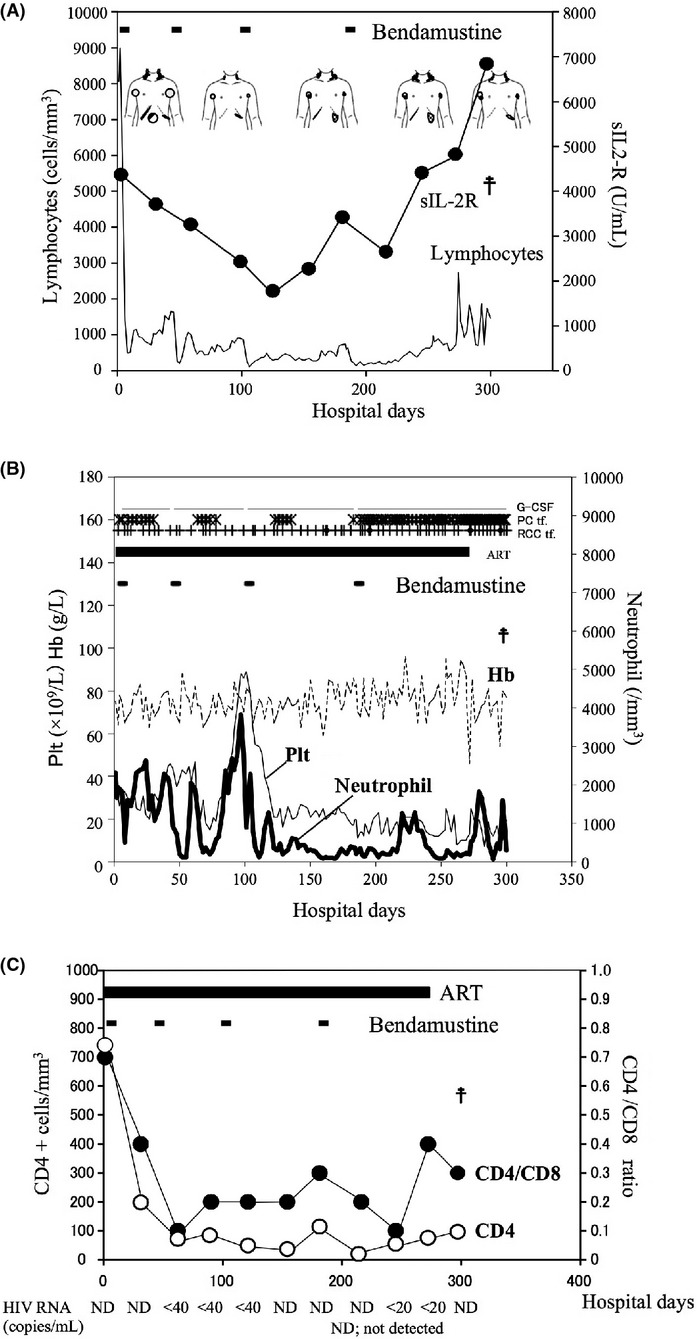
Few reports have described the coincidence of chronic lymphocytic leukemia (CLL) and HIV. We administered bendamustine to an HIV-positive refractory CLL patient and obtained a significant objective response. Our results indicate that bendamustine can be used in HIV-infected CLL patients. We also reviewed 12 cases of CLL with HIV infection.
Identification of ribonucleotide reductase mutation causing temperature-sensitivity of herpes simplex virus isolates from whitlow by deep sequencing
- Pages: 461-467
- First Published: 22 April 2015
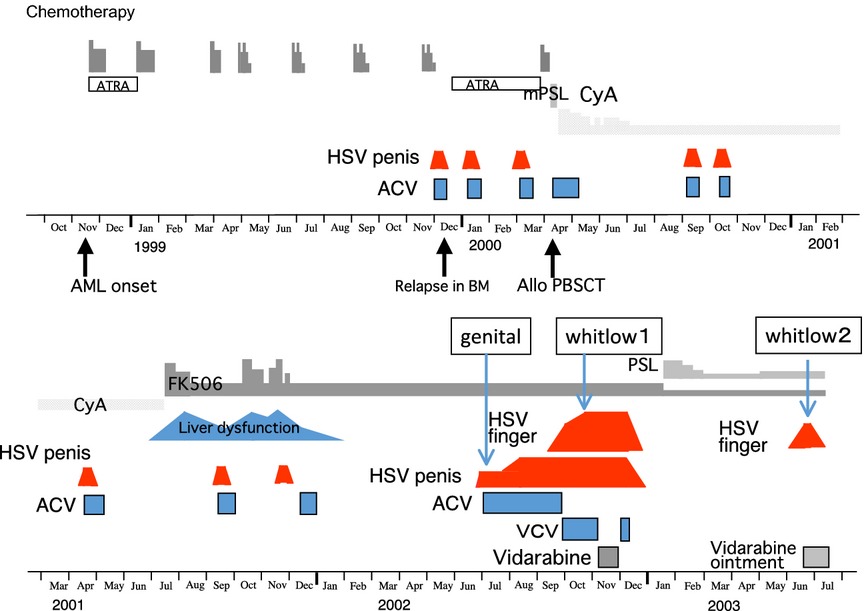
Herpes simplex virus 2 caused a genital ulcer, and a secondary herpetic whitlow appeared during acyclovir therapy. The secondary and recurrent whitlow isolates were acyclovir-resistant and temperature-sensitive in contrast to a genital isolate. We identified the ribonucleotide reductase mutation responsible for temperature-sensitivity by deep-sequencing analysis.
A case report of periprosthetic fracture left proximal humerus with radial nerve palsy following pectoralis major repair
- Pages: 468-471
- First Published: 22 April 2015
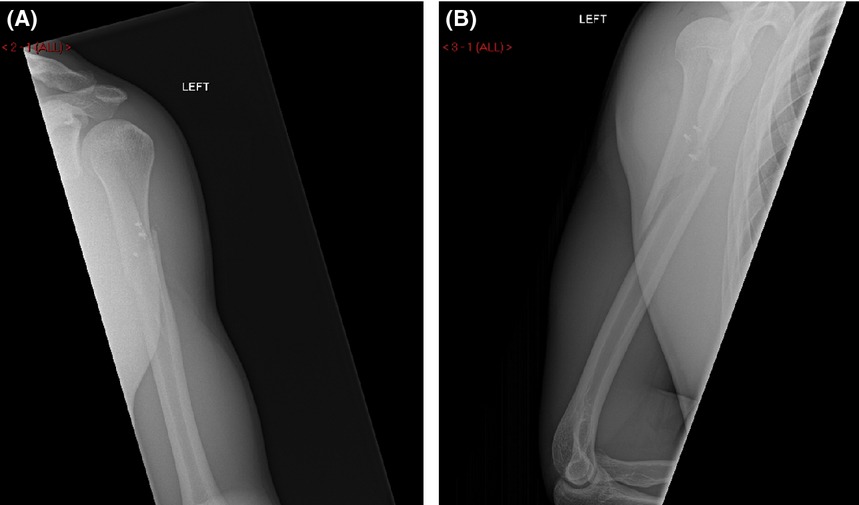
Primary repair of pectoralis major tendon with bony tunnels and anchor sutures in the proximal humerus creates a potential weakness and stress riser leading to increased risk of periprosthetic fracture and nerve damage at the site of weakness with subsequent injury, if not allowed to heal satisfactorily with adequate period of rest.
Thalidomide for tocilizumab-resistant ascites with TAFRO syndrome
- Pages: 472-478
- First Published: 22 April 2015
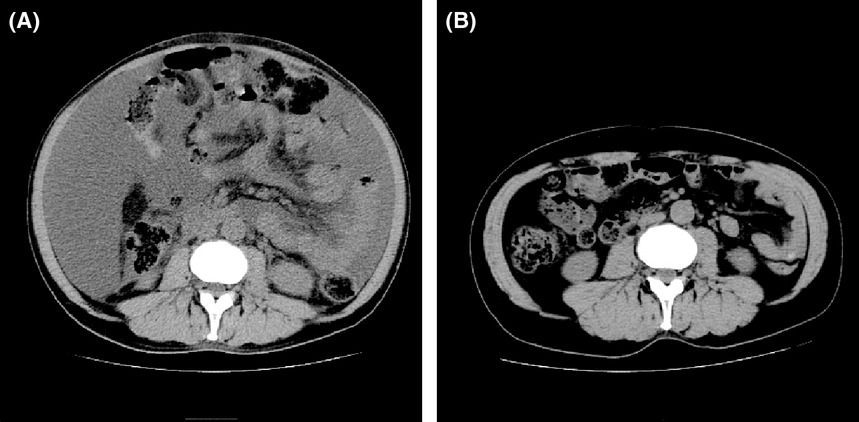
TAFRO syndrome has been proposed as a rare variant of Castleman's disease. This article reports a case of a 56-year-old man with TAFRO syndrome who was successfully treated with thalidomide in spite of the refractoriness to prednisolone and tocilizumab. Thalidomide may be one of the treatment options for TAFRO syndrome.
Conservative therapy with a gonadotropin-releasing hormone agonist for a uterine arteriovenous malformation in a patient with congenital heart disease
- Pages: 479-482
- First Published: 29 April 2015
Skin lesions and neutrophilic leukemoid reaction in a patient with angioimmunoblastic T-cell lymphoma: a case report and review of the literature
- Pages: 483-488
- First Published: 29 April 2015
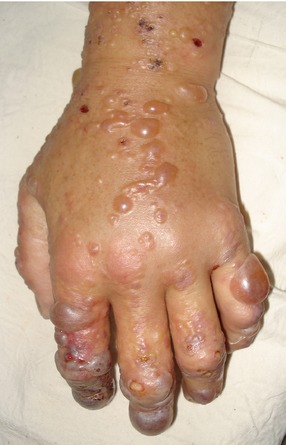
Here, we present a 53-year-old man with angioimmunoblastic T-cell lymphoma accompanied by skin lesions (vesicles, papulovesicles, and miliary papules symmetrically distributed on extremities and trunk, with more distal lesions increasing in severity). Routine blood tests showed a white blood cell count of 58.97 × 109/L (Neutrophils% 91.64%).
Cell-free fetal DNA in the maternal circulation originates from the cytotrophoblast: proof from an unique case
- Pages: 489-491
- First Published: 29 April 2015
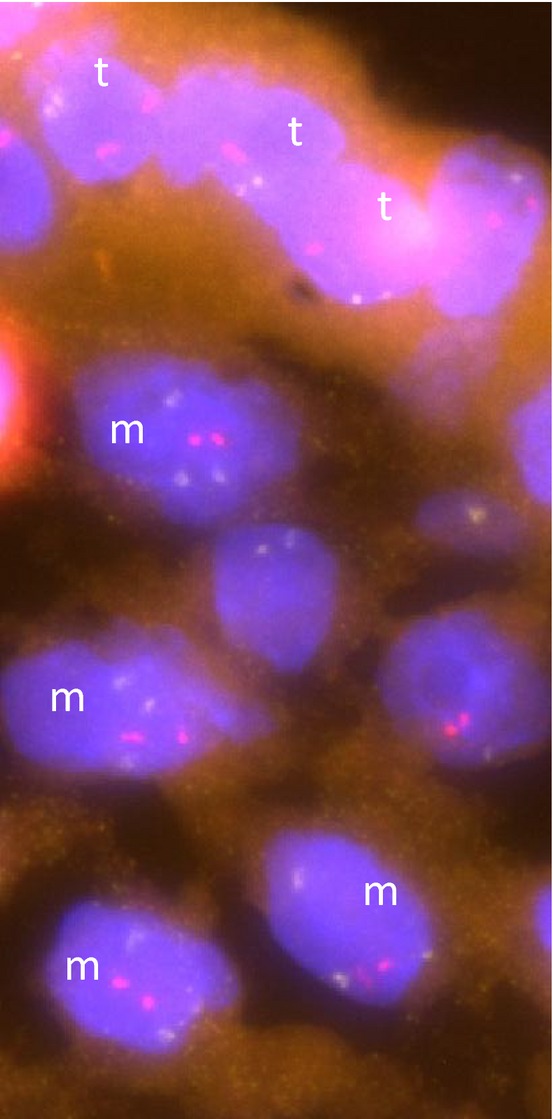
Noninvasive prenatal testing (NIPT) and direct karyotyping of cytotrophoblast were normal for a male fetus, but cultured chorionic villus mesenchymal cells and umbilical cord fibroblasts showed nonmosaic trisomy 18. This observation provides direct evidence for the cytotrophoblastic origin of cell-free fetal DNA and yields a biological explanation for falsely reassuring NIPT results.
Anesthesia for deep brain stimulation in traumatic brain injury-induced hemidystonia
- Pages: 492-495
- First Published: 29 April 2015

Deep brain stimulation in an awake patient presents several unique challenges to the anesthesiologist. It is important to understand the various stages of the procedure and the complexities of anesthetic management in order to have a successful surgical outcome and provide a safe environment for the patient.
Parapharangeal edema: an uncommon complication of TMJ arthroscopy
- Pages: 496-498
- First Published: 30 April 2015
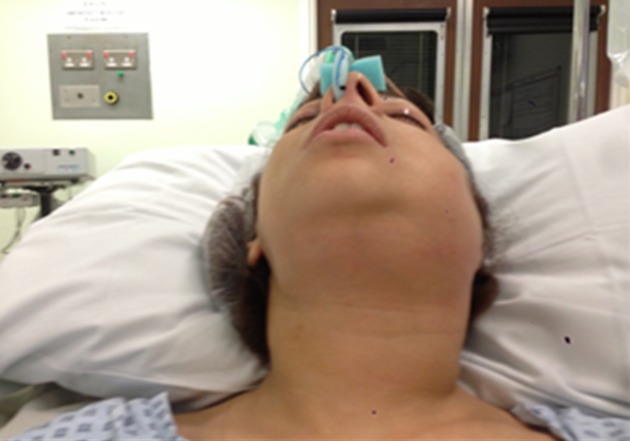
Ohnishi in 1975 first described temporomandibular joint (TMJ) arthroscopy. Along with its extensive use, a range of complications has emerged. We describe a patient who experienced parapharyngeal swelling after undergoing arthroscopy. Prolonged intubation up to 1 hour postoperatively was required. The swelling resolved completely over 6 h without further intervention.
The impact of ruxolitinib treatment on inflammation-mediated comorbidities in myelofibrosis and related neoplasms
- Pages: 499-503
- First Published: 04 May 2015
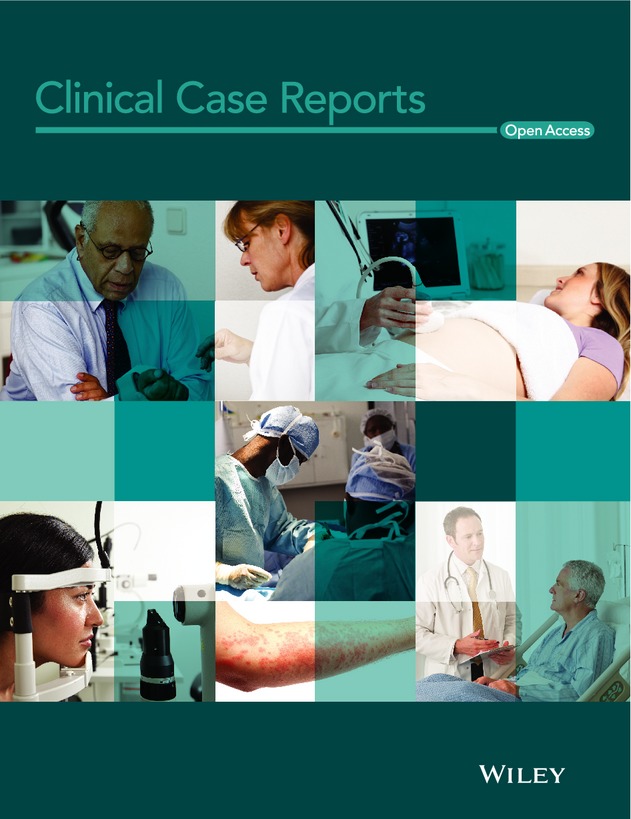
The inflammation-mediated comorbidities in myelofibrosis (MF) and related neoplasms (MPN's) likely reflect the concurrent immune deregulation and systemic inflammatory nature of the MPN's, emphasizing the link between chronic systemic inflammation, immune deregulation, and the malignant clone. JAK1-2 inhibitors in MF-patients reduce constitutional symptoms and splenomegaly, but also target autoimmune comorbidities.
Clinical Images
Recurrent abdominal pain in 52-year-old male
- Pages: 504-505
- First Published: 09 April 2015
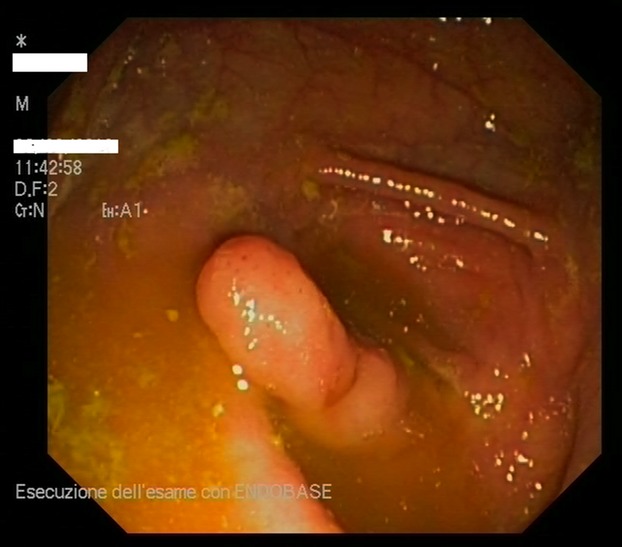
Intussusception of the appendix is a rare condition. Symptoms vary widely, whereas some patients are asymptomatic. Diagnosis is generally challenging and few cases have been diagnosed by colonoscopy. It is important to recognize the endoscopic appearance of this entity in order to avoid the potential hazard of an inadvertent “polypectomy”.
Snapshot in surgery: brain abscess as a complication of a recurrent sigmoid diverticular abscess
- Pages: 506-507
- First Published: 09 April 2015
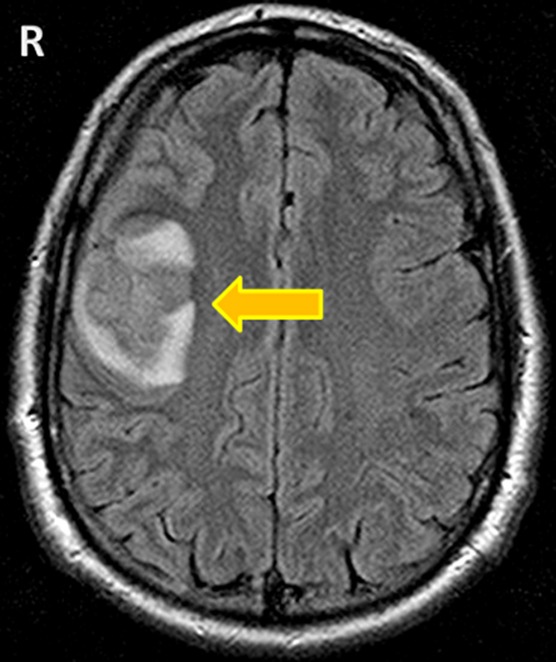
A 35-year-old man was found to have a cerebral abscess secondary to a recurrent sigmoid diverticular abscess. Both cultures grew Streptococcus anginosus. Brain abscess is a rare but potential complication of sigmoid diverticulitis.Streptococcus anginosus, which is found in human gut flora, is a common cause of brain abscess.
Topiramate-induced nephrolithiasis
- Pages: 508-509
- First Published: 09 April 2015
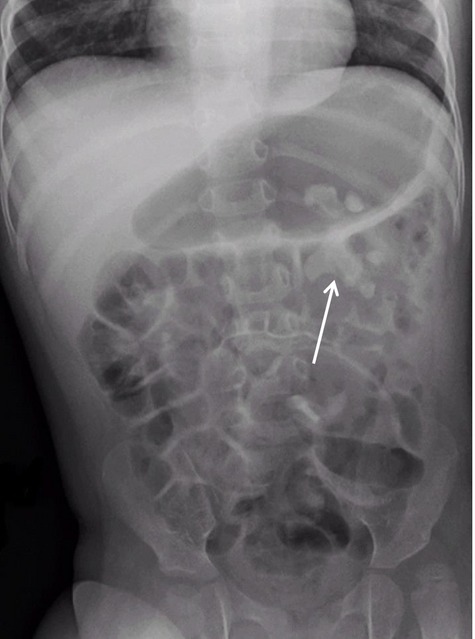
Nephrolithiasis is a less common side effect of the antiepileptic drug topiramate. We report the case of a 3-year-old boy who presented to the emergency department with abdominal pain; examinations revealed a large calcification in the left kidney. Regular ultrasound examinations are recommended in children using topiramate.
An unusual case of solid appendicular mass in a young female
- Pages: 510-511
- First Published: 22 April 2015
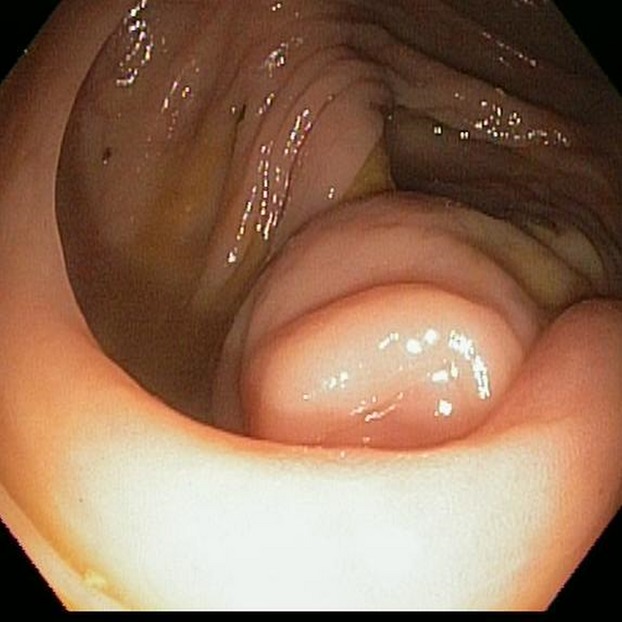
Endometriosis should be entertained as part of differential diagnosis in females in child-bearing age group when there is an incidental finding of solid neoplasm on imaging. It helps to guide physicians for appropriate management. It is important to emphasize that no radiological or imaging finding is pathognomonic for endometriosis.
Snapshot quiz – recurrent right iliac fossa pain in the patient with a previous history of appendicitis
- Page: 512
- First Published: 29 April 2015
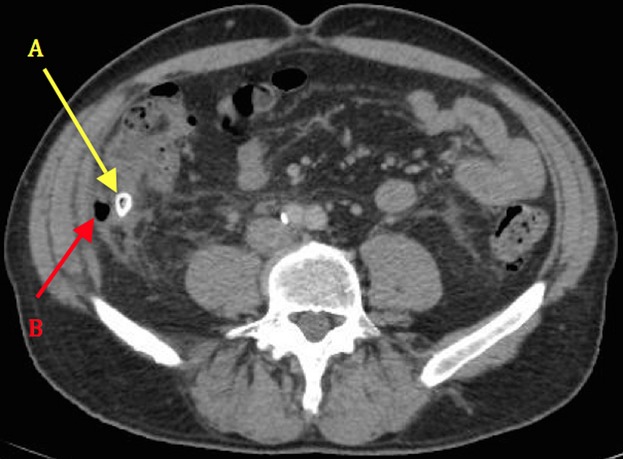
A low threshold for computed tomography (CT) scanning in patients with previous appendicectomy and right iliac fossa pain helps facilitate timely diagnosis and exclusion of other differential diagnoses. Here, we present a rare cause which has significant medicolegal ramifications and is accurately diagnosed with CT.
Henoch–Schönlein purpura with preceding abdominal pain
- Pages: 513-514
- First Published: 29 April 2015
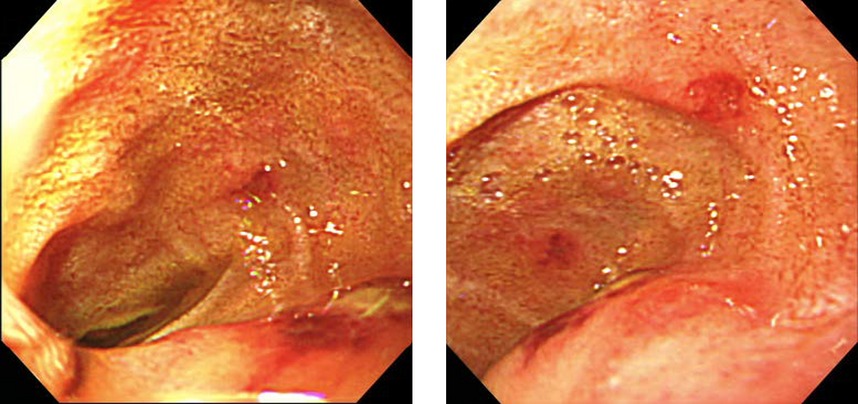
Diagnosing HSP can be difficult, especially when abdominal symptoms precede the onset of characteristic palpable purpura (Chen MJ et al. 2005, World Gastroenterol., 11, 2354). Therefore, it is necessary to consider the possibility of HSP in patients with prolonged strong abdominal pain, even in cases without purpura.
Managing cesarean section in a patient with rotated uterus due to a large myoma
- Pages: 516-517
- First Published: 29 March 2015
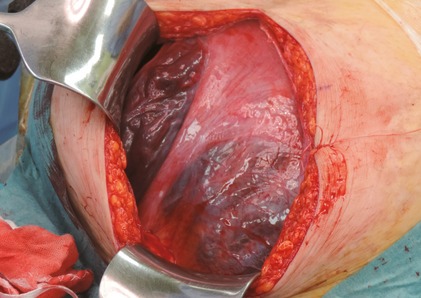
In pregnancies complicated by large myomas, obstetricians may face difficulties during cesarean section if they fail to notice the rotation of the uterus and could make an incorrect uterine incision. This error might cause massive intraoperative hemorrhage. Obstetricians must exercise extreme caution during cesarean sections complicated by large myomas.
Clinical Video
Ankle clonus
- Page: 520
- First Published: 09 April 2015
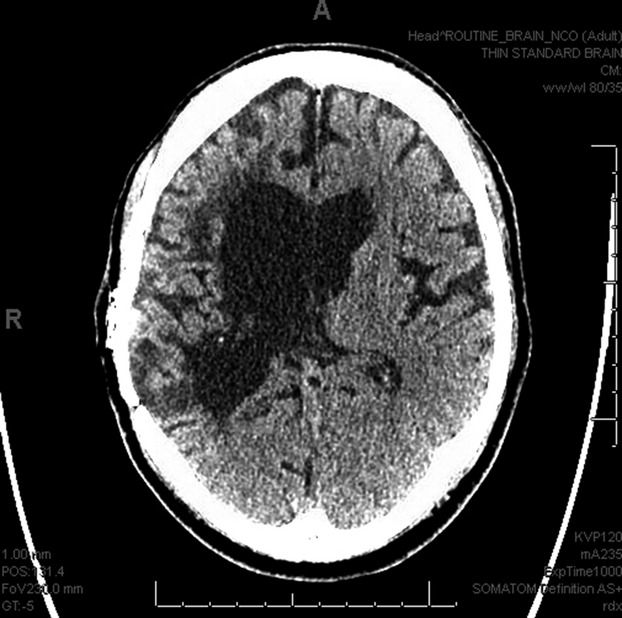
Clonus is a series of involuntary, rhythmic, muscular contractions, and relaxations. It may be caused by interruption of the upper motor neuron fibers such as stroke, multiple sclerosis, or by metabolic alterations such as severe hepatic failure or serotonin syndrome. We present a video case of impressive left ankle clonus in a patient with old right middle cerebral artery stroke.





